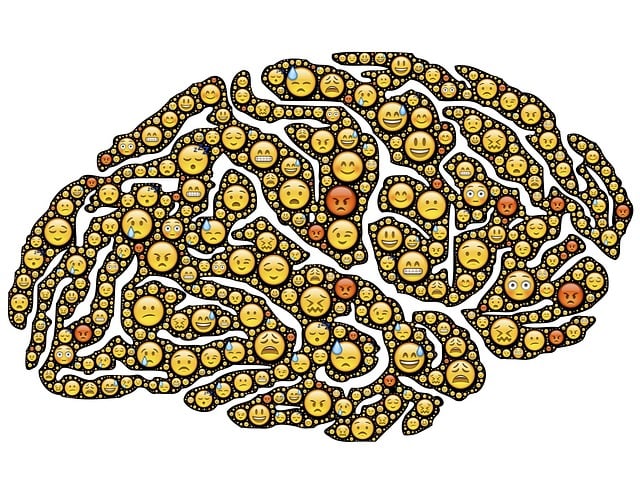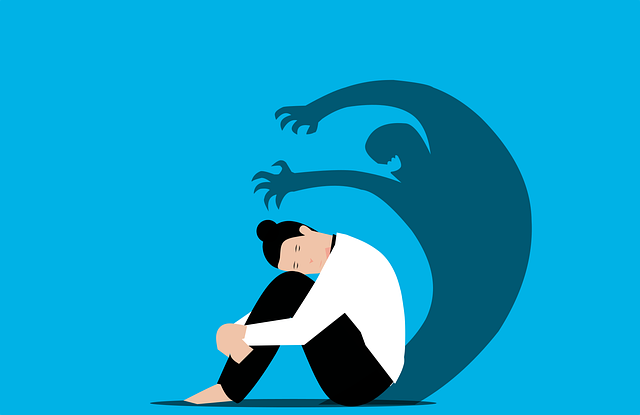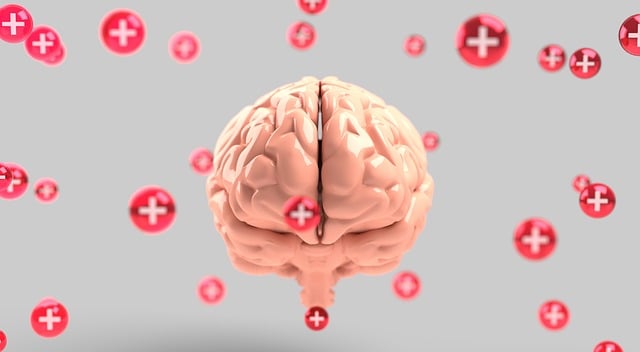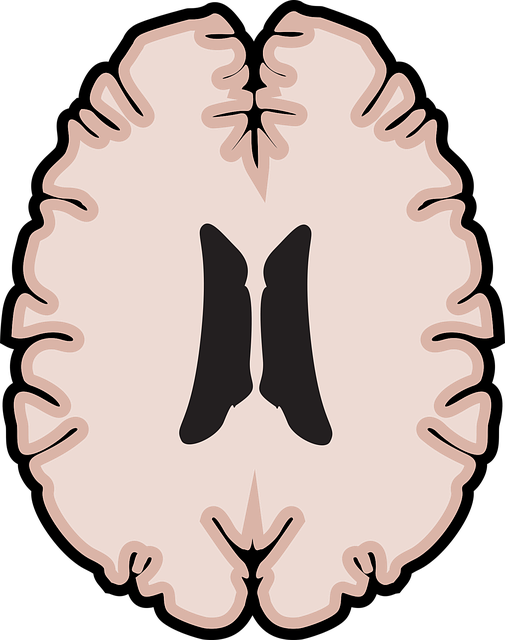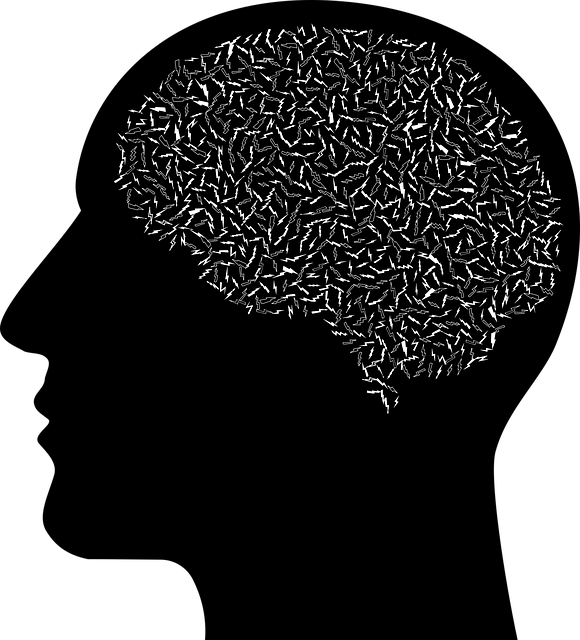Depression, a global concern affecting millions, is a complex mental health disorder requiring early recognition of signs like persistent sadness, changes in appetite or sleep, and fatigue. Lafayette Psychosis Therapy underscores the multi-faceted nature of depression, advocating personalized approaches that include Mental Health Education Programs teaching Mind Over Matter principles for coping, fostering supportive social networks, and seeking professional help for tailored treatment plans. Adopting healthier lifestyles through regular exercise, quality sleep, and balanced diets significantly enhances mental well-being. Social connections and self-care practices like meditation offer trauma support and burnout prevention tools. Lafayette Psychosis Therapy combines talk therapies, support groups, and cultural sensitivity for comprehensive depression prevention, building resilience through evidence-based practices and promoting early intervention via wellness coaching and self-care integration into daily routines.
Depression is a prevalent yet treatable condition affecting millions. If you’re looking to prevent or manage depression, this guide offers valuable insights. We explore essential strategies like understanding the signs and symptoms, adopting healthy lifestyle changes, and leveraging therapy and support groups. Additionally, we delve into building resilience through effective coping mechanisms for long-term mental well-being. For tailored assistance, consider Lafayette Psychosis Therapy, specializing in evidence-based approaches to depression prevention.
- Understanding Depression: Recognizing the Signs and Symptoms
- Lifestyle Changes for Better Mental Health
- The Role of Therapy and Support Groups in Prevention
- Building Resilience: Coping Strategies for Long-Term Well-being
Understanding Depression: Recognizing the Signs and Symptoms

Depression is a complex mental health disorder that impacts millions worldwide, characterized by persistent feelings of sadness, loss of interest in activities once enjoyed, and a range of physical and cognitive symptoms. Recognizing the signs and symptoms early on is crucial for effective prevention and treatment. Lafayette Psychosis Therapy emphasizes the importance of understanding depression as a multi-faceted condition that can manifest differently in each individual.
The key to preventing and managing depression lies in being vigilant about one’s mental health. This involves learning to identify warning signs such as persistent sadness, changes in appetite or sleep patterns, fatigue, difficulty concentrating, feelings of worthlessness, and recurrent thoughts of death or suicide. By educating oneself through Mental Health Education Programs Design that incorporate Mind Over Matter Principles, individuals can develop coping strategies for managing stress and mood fluctuations before they escalate into full-blown depression. Effective prevention also includes fostering a supportive social network and seeking professional help when needed, ensuring proper diagnosis and personalized treatment plans for optimal mental well-being.
Lifestyle Changes for Better Mental Health

Adopting a healthier lifestyle can significantly impact mental well-being and depression prevention. Regular exercise, for instance, plays a pivotal role in boosting mood by releasing endorphins and reducing stress hormones. This simple yet powerful tool is accessible to everyone, offering a natural way to combat low moods. Additionally, prioritizing quality sleep and maintaining a balanced diet are essential; both are fundamental for regulating emotions and cognitive function. Studies have shown that individuals with well-managed sleep patterns exhibit improved mental resilience and a lower risk of depression.
Beyond physical health, social connections and self-care practices are crucial. Building and nurturing relationships can provide emotional support during challenging times. Engaging in activities that promote relaxation and mindfulness, such as meditation or therapy, can also serve as effective trauma support services, helping individuals process and manage difficult experiences. Lafayette Psychosis Therapy, along with crisis intervention guidance, offers valuable tools for burnout prevention, empowering people to develop coping strategies tailored to their unique needs.
The Role of Therapy and Support Groups in Prevention

Depression prevention strategies often include a combination of therapeutic approaches tailored to an individual’s needs. Among the most effective methods are talk therapies, such as Lafayette Psychosis Therapy, which focuses on identifying and changing negative thought patterns and behaviors associated with depression. These sessions provide individuals with valuable coping mechanisms, emotional support, and tools for managing stress and anxiety relief.
Support groups play a crucial role in prevention by fostering a sense of community and reducing feelings of isolation. In these groups, individuals can share their experiences, gain different perspectives, and learn from others facing similar challenges. Incorporating social skills training within these settings enhances communication and builds stronger connections, contributing to improved mental well-being. Cultural sensitivity in mental healthcare practice is also essential, ensuring that prevention strategies are inclusive and respectful of diverse backgrounds.
Building Resilience: Coping Strategies for Long-Term Well-being

Building resilience is a key component of long-term depression prevention. By cultivating coping strategies that promote mental strength and adaptability, individuals can better navigate life’s challenges and maintain their well-being. Lafayette Psychosis Therapy offers valuable resources for developing this resilience through evidence-based practices tailored to individual needs. These approaches often include learning effective stress management techniques, fostering positive self-talk, and establishing healthy boundaries.
Mental Health Education Programs Design and Mental Wellness Coaching Programs Development play a crucial role in empowering individuals with the knowledge and skills to recognize early warning signs of depression and implement timely interventions. Additionally, integrating Self-Care Practices into daily routines can significantly boost resilience by promoting balanced lifestyles that support both physical and mental health.
Depression prevention is a multifaceted approach that combines understanding, proactive lifestyle changes, and access to support. By recognizing signs early on and adopting strategies like those discussed regarding mental health promotion and therapy (including Lafayette Psychosis Therapy), individuals can build resilience and maintain long-term well-being. Integrating these practices into daily life offers hope for preventing and managing depression effectively.


